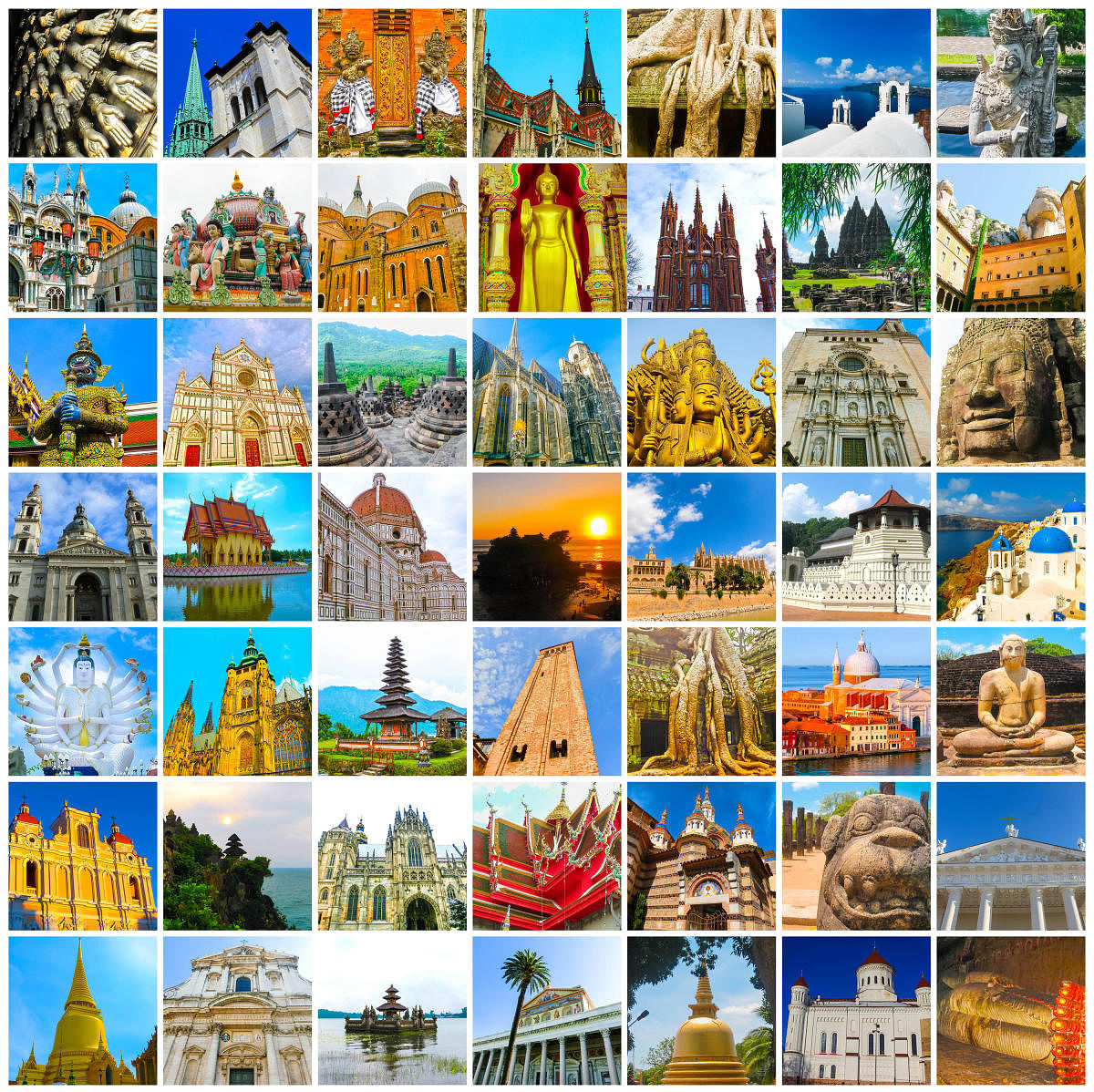
Imagine there’s no heaven
It’s easy if you try
No hell below us
Above us only sky
Imagine all the people
Living for today (ah ah ah)
Imagine there’s no countries
It isn’t hard to do
Nothing to kill or die for
And no religion, too
— from John Lennon’s immortal song ‘Imagine’
Now, when religion and god are wreaking havoc in India, the Taj Mahal is becoming Tejo Mahalaya and Qutub Minar, Vishnu Stambh, any sane person will start thinking whether we indeed need religion and god. One is bound to be reminded of Carl Marx’s oft-quoted definition of religion that it’s the opium of the masses. It sure is.
In recent years, scientists specialising in the mind have begun to unravel religion’s “DNA”. They’ve produced robust theories, backed by empirical evidence (including ‘imaging’ studies of the brain at work), that support the conclusion that it was humans who created god, not the other way around. And the better we understand science, the closer we can come to “no heaven... no hell... and no religion too”.
Dr Andrew Newman has done studies in neurology, showing that a majority of people have a dependence on god to meet some basic needs. There’s a ‘god-gene’ in most of the humans as religion and god are hardwired into the human DNA.
The better we understand human psychology and neurology, the more we’ll uncover the underpinnings of religion. Sigmund Freud called religion a neurological phenomenon and viewed it as the unconscious mind’s need for wish fulfilment. French-American cognitive anthropologist Pascal Boyer further seconded the Freudian viewpoint in his book Religion Explained: The Evolutionary Origins of Religious Thought (2001).
Contrary to the general tenor that religion is humankind’s anchorage and moral support, it has been the bane of mankind right from the advent of human civilisation. Since then, humans have been prisoners of beliefs, incarcerated by a raft of prejudices. What the masses don’t understand become religious ‘truths’ and supernatural phenomena.
Religion is the relic of our ignorant past. So, why should we still adhere to it in this age of reason? And with religion emerged its concomitant corollary called god that enslaved mankind and took away its rationality. At the root of all violence and bloodshed, that has shaken human civilisation like a soda water bottle, have been two unchanged components: god and faith. Remember, the philosopher has never killed any priests whereas the priest has killed a good many philosophers. Religion has ossified man’s thinking and fossilised his cognitive faculty. It has woefully limited our perceptions of reality and restricted our rationality. That’s why Flat-Earthism hasn’t died out even though it has been known for well over 2,000 years that the Earth is round. It’s because of religion’s overwhelming influence on our collective psyche that a large section of believers still believes in immaculate conception, resurrection and the Second Coming.
Past and present religious atrocities have occurred not because we’re evil, but because it’s a fact of nature that the human species is, biologically, only partly rational. Since the human brain is still terribly ill-evolved and we don’t have answers to a number of natural phenomena, god and religions emerged as plausible explanations to those phenomena. Two primordial fears of mankind engendered god and religion — fear of the unknown and refusal to accept death as closure. These fundamental fears are the parents of god and religion.
The ill-evolved humans view religion as their safest haven with its omnipotent custodian, god. This make-believe snug feeling of ensconced protection from perceived ills and evils consolidates our belief in religion and god. Ergo, an average human is never willing to accept that religion is the universal neurosis and god is our troglodyte ancestors’ neurotic concoction.
The exclusive supremacy of one’s respective religion and its god has made us belligerent. That my way is the highway and my god is the only saviour relegated the world into an arena of sanguinary battles and skirmishes. Zealotry has become an acceptable human behaviour as all of us are steeped in our faiths and their totems and shibboleths.
So long as humans remain neck-deep in the quagmire of religious mumbo-jumbo and continue to believe in a fabricated god, mankind is condemned to suffer and bleed to death. We, therefore, must get rid of these universal ills and mankind’s curses as soon as possible.